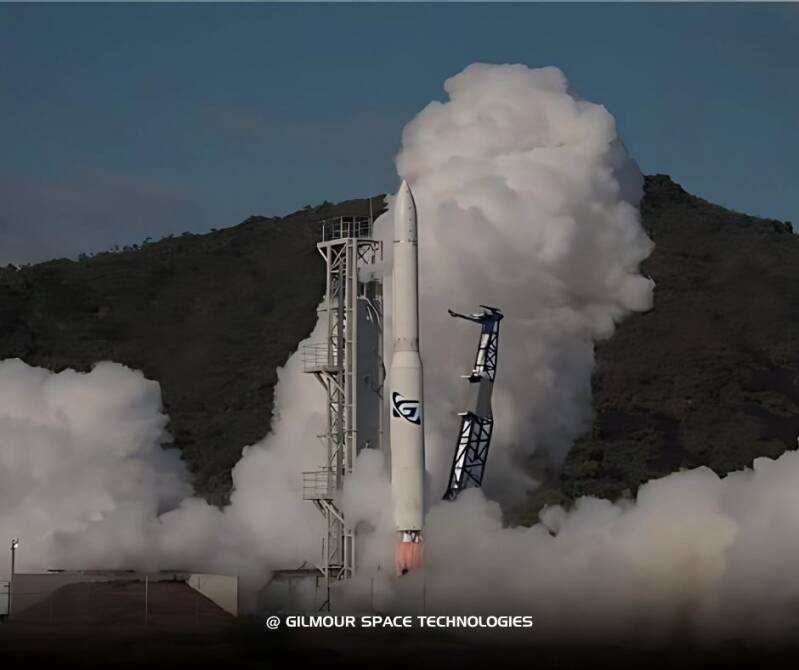Australia marked a significant step in its space ambitions today, as Gilmour Space Technologies launched the country's first locally developed orbital rocket from domestic soil — though the mission ended just 14 seconds after liftoff.

Credit: Gilmour Space
At approximately 8:35 a.m. local time (6:35 p.m. EDT, 2235 GMT), the 25-meter-tall Eris rocket lifted off from the Bowen Orbital Spaceport on Queensland’s coast. Moments later, however, the rocket began veering sideways and crashed back to Earth, ending its brief flight. Despite the setback, the attempt marked a major milestone for the private Australian aerospace company.
The mission, dubbed Eris-1, was not expected to achieve full success on its maiden flight. In a statement earlier this year, Gilmour Space emphasized that even partial flight would yield critical data to refine future launches. That sentiment remained unchanged following today’s outcome.
“Today, Eris became the first #AustralianMade orbital rocket to launch from Australian soil — ~14s of flight, 23s engine burn,” the company said on social media platform X, sharing images of the liftoff. “Big step for launch capability. Team safe, data in hand, eyes on TestFlight 2.”
CEO Adam Gilmour praised the progress made, calling the flight "a huge step forward for any new rocket program." He added, “This was the first real test of our rocket systems, our propulsion technology, and our spaceport — and it proved that much of what we've built works.”
Importantly, no injuries or environmental harm were reported as a result of the flight anomaly.
Today's launch came after several delays. The mission was originally scheduled for March but was postponed due to Tropical Cyclone Alfred. A second attempt in mid-May was halted after a power surge caused the rocket's payload fairing to detach on the launch pad. Strong winds and unfavorable weather conditions further pushed the launch into late July.
Founded in 2015 by brothers Adam and James Gilmour, Gilmour Space Technologies is based on Australia’s Gold Coast and has grown to a team of around 200 employees. The Eris rocket, capable of carrying up to 215 kilograms (474 pounds) into sun-synchronous orbit, is central to the company’s vision of making Australia a key player in orbital spaceflight.
Beyond launch vehicles, Gilmour Space also builds satellites. Its ElaraSat satellite bus made its debut last month on SpaceX’s Transporter-14 rideshare mission, carrying a hyperspectral imager developed for CSIRO, Australia’s national science agency, to monitor water quality.
The launch marks the first orbital attempt from Australian territory in over half a century. The last successful orbital launch from Australian soil took place in October 1971, when a British Black Arrow rocket launched the Prospero satellite from the Woomera Rocket Range in South Australia.
Despite today's abbreviated flight, the event is seen as a foundational moment for Australia's re-emergence in space launch capabilities. With valuable data collected and no safety incidents reported, Gilmour Space is already looking ahead to its next test flight.


Add comment
Comments